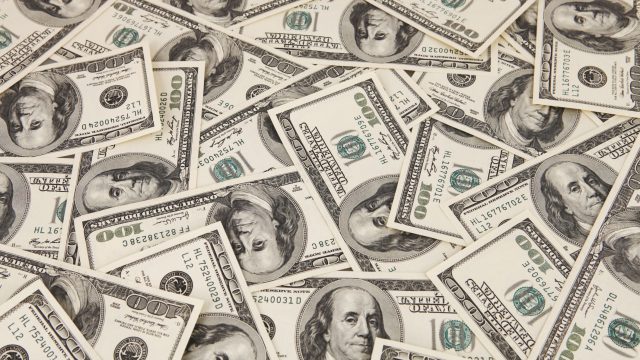With Oil Prices Uncertain House Passes Smallest Income Tax Cut Bill Available

Here’s what House lawmakers rejected:
- HB1167: Introduced by Rep. Scott Louser (R-Minot), this was by far the largest tax cut before the House. It would have represented a reduction of $973 million in personal income taxes in the coming biennium by essentially eliminating the income tax. It would have cut the state’s income tax brackets down to just one, and would have set the rate for that one bracket at zero percent. The bill was amended to leave a 1 percent income tax in place if the state’s oil tax “big trigger” was, you know, triggered by falling oil prices. This was my favorite bill, but it failed on a 23-70 vote.
- HB1296: Introduced by Rep. Kim Koppelman (R-West Fargo), this would have reduced income taxes by an estimated $292 million by moving the state to a flat 2 percent tax rate. It was, like Louser’s bill, both a tax cut and income tax reform only it didn’t zero out the tax rate. It failed on a 31-62 vote.
- HB1298: This bill, introduced by Rep. Jim Kasper (R-Fargo) would have preserved the state’s existing tax brackets but would have raised the income thresholds for each bracket. It also reduced tax rates for each bracket resulting in a $250 million total income tax cut. It failed on a 19-74 vote.
So what did the house ultimately go for? HB1223, introduced by Rep. Jason Dockter (R-Bismarck) which implements just a modest $152 million reduction in income taxes ($100 million for personal income taxes and $52 million for corporate income taxes). Like HB1298 it increased the income thresholds for the existing personal income tax brackets, but reduced rates by a smaller percentage.
The passage of this bill happens two years (almost to the day) after the House passed a half billion dollar income tax package in 2013.
My how the times have changed.
That bill went on to get watered down in the state Senate, and ultimately taxpayers got about half that much income tax relief.
There was a lengthy debate on HB1223 (see above, it was evident that House members knew which bill had the best shot at passing heading into the floor session today), and most of the opposition to the bill came from Democrats who accused Republicans of ignoring spending needs in favor of tax cuts.
House Majority Leader Al Carlson rose to respond to that charge, noting that the state continues to increase spending and add employees, and that there’s still room for tax reductions.
I’m disappointed that the House didn’t pass a larger tax cut (given the history of tax relief in the Senate I think we can look at the $152 million worth of relief in HB1223 as the ceiling for income tax cuts this session), but perhaps that’s to be expected in light of revenue uncertainty due to low oil prices. That being said, it would have been nice to see the House at least reform the state’s tax brackets.
A $152 million personal income tax cut on top of making our existing progressive tax code a flat tax would have improved this outcome a bit.




